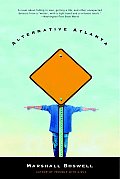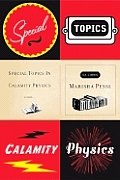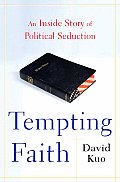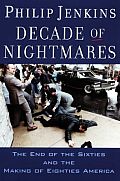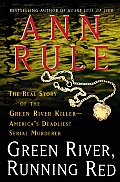Hang out long enough in stores that sell Fantastic Four t-shirts and scale models of Hellboy's stone fist, and you'll likely hear the rallying cry of "Comics: Not Just For Kids Anymore!". What is usually meant by this is that there are works that cover serious themes in fairly "literary" ways; not everyone in a comic, in other words, has a cape, web-shooters, or adamantium claws. Books like
Art Spiegelman's Maus or
Craig Thompson's Blankets, two recurrent poster children for the "comics-are-high-art" camp, are often then held up as evidence of the aesthetic maturity of comics/comix/sequential art.
But there is another sense in which comics are not just for kids anymore: some parents might take it amiss if their kids read a series whose protagonist's defining moment involved botching an exorcism and condemning the soul of a little girl to an eternity of torment in Hell.
(He did try to pull her back out of the clutches of the damned and all, but he only managed to grab her arm. And it kind of...uh...came off.)
John Constantine: Hellblazer is a comic, but it's certainly not for little kids.* The title character, initially created by Alan Moore in the pages of
Swamp Thing, is a working class mage, a kind of populist Merlin in a shabby trenchcoat with a penchant for lager and
Silk Cuts by the carton, a hard-bitten cynic rooting through the ruins of Thatcher's England whose outlook on life would make Raymond Chandler blanch. He is not exactly a good person, but for fans of noir antiheros, he's an endlessly engaging character.**
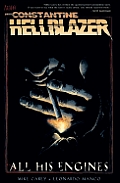
In Mike Carey and Leonardo Manco's
All His Engines - a standalone graphic novel published for the benefit of non-readers who saw and maybe liked the Keanu Reeves film adaptation (which you and I will just pretend didn't happen) - Constantine finds himself traveling from London to Los Angeles investigating a mysterious illness that's leaving people in comas in both cities. Sleazy Hollywood demons, Aztec death gods who have emigrated north with their followers' grandkids, and Constantine's long-suffering driver/best friend/muscle Chas all come together in a plot that finds Constantine out of his element and right in it at the same time, double-dealing with the forces of evil while learning the hard way that L.A. ain't London.
All His Engines is a good introduction to the larger series; it requires very little in the way of knowledge of the series' mythology or backstory and provides a guide to the collected editions that Vertigo has culled from the series, which now numbers in the 200s. It also hits its marks in such a way as to suggest what the broader Constantine narrative holds, without simply rehashing the older, now classic stories.
Finally, the art is damn creepy, doing what prose often can't in the horror genre: squicking one out without becoming overwrought in the depiction of viscera and gore. I'm thinking here of the scene in which John is sucked into the chest of a demon who's made his body out of cancer cells. Gah.
If you like...
Stephen King and Ray Chandler in equal measure, or
Firefly's Captain Mal in his darker moments, this book is for you.
---------------
*I do have to admit, though, that sometimes I daydream about sending copies of
Hellblazer to the children of the parents who are trying to ban Harry Potter, just to show them what they should be worrying about.
**On the one hand, he once tricked the devil into drinking holy water (in the form of a pint of Guinness) to save the soul of a buddy who'd sold it for the world's greatest collection of intoxicating potables. On the other hand, while John is smart and John is crafty, John is also prone to getting out of trouble by asking you to hold his place in the Infernal Beatings line for a minute or two while he nips out for another pack of smokes.
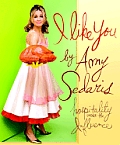 Everyone is already doing their Best of 2006 lists. I am waiting until mid-December, like a decent person would.
Everyone is already doing their Best of 2006 lists. I am waiting until mid-December, like a decent person would. 2. Absolute Sandman, Vol. 1 by Neil Gaiman
2. Absolute Sandman, Vol. 1 by Neil Gaiman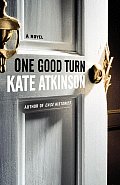 4. One Good Turn by Kate Atkinson
4. One Good Turn by Kate Atkinson



